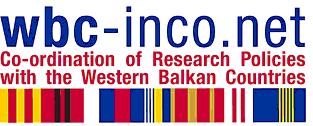This 1-day workshop intends to provide the necessary guidance and information through in-depth training sessions (of a three-hour duration) combined with practical and case study examples. At the end of the workshop, participants will be expected to:
- Have acquired a solid overview of the basic concepts, tools and policies in Knowledge Transfer
- Have understood the role and operation of a Knowledge Transfer Office (KTO) as well as its utility and benefit for the work of academics and members of the business community.
- Have gained useful insight on the terms, negotiation, management, and monitoring of IP agreements for maximum benefit both to academics and to the business community.
The opening session will be delivered by Dr. Rene WINTJES, Senior Researcher at the United Nations University - Maastricht Economic and Social Research Institute on Innovation and Technology and it will be an Introduction to the basic concepts, tools and policies of Knowledge Transfer.
Dr. Spela STRES, Head of the Centre for Technology Transfer and Innovation at the Institut Josef Stefan of Slovenia, will deliver a training on "The role and operation of Knowledge Transfer Offices and links to the Industry and Society. Examples-Case studies". This session aims to consolidate the understanding of the role of a Knowledge Transfer Office (KTO). It places emphasis on the function and operation of a KTO and the way in which it can be utilised by both academia and industry for creating long lasting links . This session will address the role of an intermediary within or outside an academic institution and will explain its inner workings with examples and case studies.
Finally, Dr. Omer Hiziroglu, General Counsel and Licensing Manager of Inovent SA (Turkey) will deliver training for the topic "Building Innovation Management Capacity: How to effectively use IP Agreements, examples and case studies". This session will address the issue of commercialising research through Intellectual Property rights, for example licensing agreements. There are various types of licensing agreements important both for academics and business people and this session would address the terms, negotiations, mode of management, and monitoring of IP agreements that are popular and beneficial to both types of professionals. The session will be balanced with examples that illustrate successful IP agreements. The point is not to present an overview of all IP rights including patents -which is something very broad and specific to inventions- but of something rather practical like IP agreements which could be more relevant to the professionals in the region.





